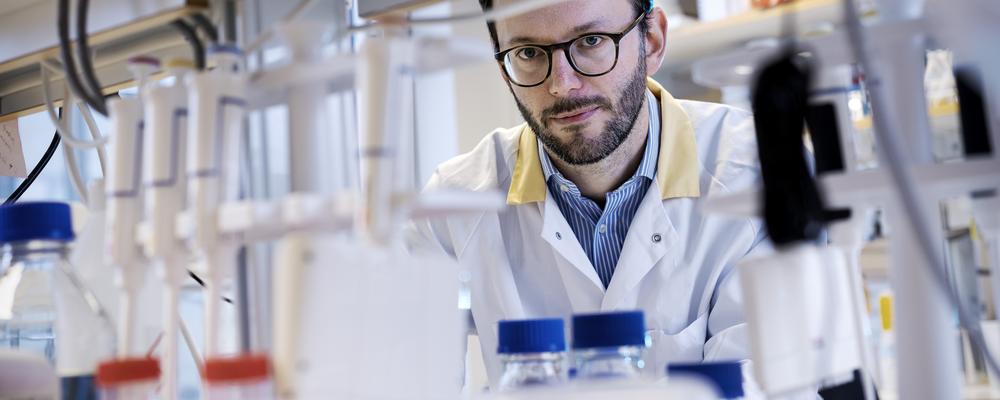Influenza is a global health challenge because the virus constantly changes. Therefore, it is difficult to develop a universal influenza vaccine. The search for antibodies is ongoing, and at the University of Gothenburg, Davide Angeletti, Senior Lecturer of immunology at the Institute of Biomedicine, and his research group have collaborated with Chinese researchers. Their study was published in the journal Nature Communications in January this year.
PPS Gothenburg contributed with protein production
Mammalian Protein Expression (MPE) at Core Facilities, has produced several proteins needed to enable the study, which in the long run may lead to success in developing a universal influenza vaccine.
Additionally, tests were conducted on mice at Experimental Biomedicine. When mice were treated with the molecule, they could resist infection, and a vaccine based on the same binding site also provided fairly good protection.
“The support from MPE was essential for this study”, says Davide Angeletti.
“Beside studying the virus directly, we need high quality recombinant proteins that are correctly folded to check the immune response. We could then test which of the identified molecules recognized the functional bits of the virus.”
“Proteins produced by MPE are key for all of our research on influenza, for example now we are studying how humans respond to seasonal vaccination by employing a eight proteins panel produced at the core facilities”.
The molecule identified by the researchers binds to a part of the virus's surface protein that is common to several influenza types, including avian influenza H7N9 and common human influenza viruses such as H1N1 and H3N2. Researchers have also observed that viruses attempting to mutate to avoid the molecule lose their ability to grow effectively.
Malin Bäckström, who is the Head of Unit at MPE as well as Director PPS, says:
“We received a request to produce protein needed for the study, the same protein but from several virus strains that differ only in a few amino acids".
"This project was special in the way that it involved many different proteins, which we have produced and purified in various batches. We are happy to have contributed to important research on something as widespread as influenza viruses”.
More Steps Remain Before a Vaccine is Approved
Although the results are promising, there is still a long way to go before the discovery can be translated into a treatment or vaccine. Before launch, the treatment must be tested on more animal models and then in clinical trials on humans to show that it is safe and effective.
